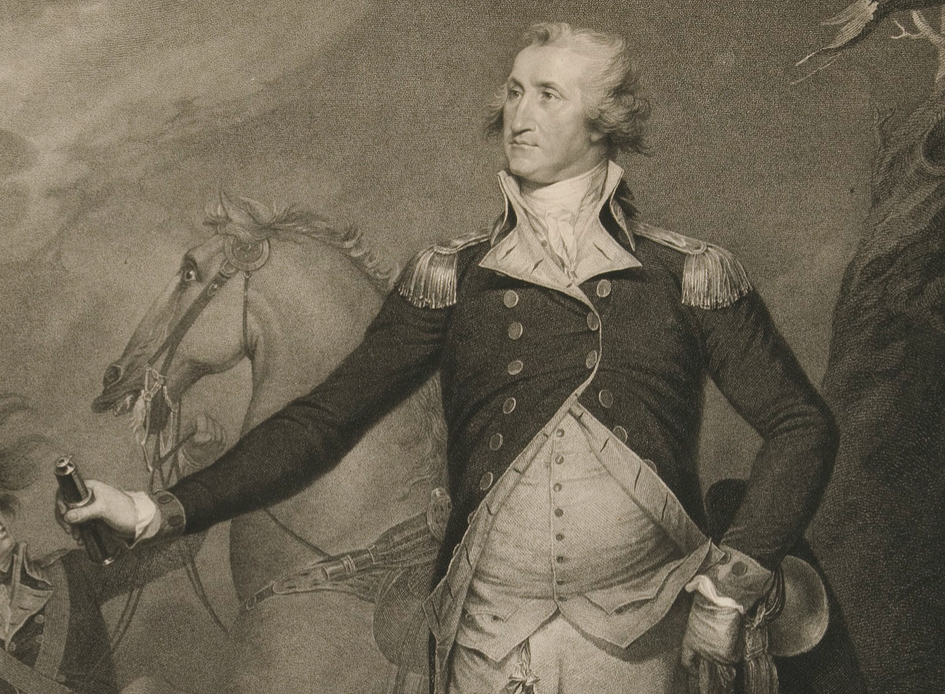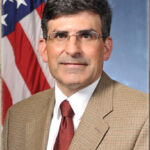Education
Washington’s Thanksgiving Proclamation
In October 1989, President George Washington proclaimed a day of thanksgiving, fifty-four years before President Abraham Lincoln did.

This Thanksgiving, we should set aside time not only for prayer as a grateful nation, a practice George Washington established in 1789 and Abraham Lincoln renewed during the Civil War, but to discuss the blessing it is that great leaders throughout our nation’s history have called Americans to uphold both religious belief and religious pluralism.
We tend to forget that Washington, the indispensable Founding Father and our first president under the Constitution, was a leading proponent of the civil theology Martin Luther King, Jr. would later invoke in his 1963 “I Have A Dream” address to great effect: that the true foundations for the American belief in equal natural rights of all human beings to life, liberty, and the pursuit of happiness lay as much, or even more, in the commandments of the God of the Bible as in the arguments of philosophers. Washington as statesman-educator propounded this civil theology in several state documents and addresses, including the first Thanksgiving Proclamation of the United States in 1789.
American views of the civic role of religious belief to provide higher guidance for, and unifying strength to, our country have changed dramatically since Washington’s national call to prayer; or Lincoln’s Second Inaugural call for “malice toward none” and “charity for all” so that a victorious Union would magnanimously rebuild a free America; or King’s call for equal civil rights so that “the glory of the Lord shall be revealed, and all flesh shall see it together.” In 2023, as America drowns in angry polarization, along with a deficient education in our civic foundations and history, most of us have no grasp of the origins and deeper meaning of Thanksgiving as a federal holiday. Can we say that America has been better off neglecting, or (in some circles) deriding, the tradition of civil theology Washington established in honoring it?
As Alexis de Tocqueville observed in the 1830s, Christianity had taught Americans since the early 17th century to seek political liberty and also affirm pluralism and tolerance across denominations in the New World. Thus, in his First Inaugural Address, Washington reaffirmed, rather than invented, a civil theology for the new constitutional order. He invoked before the first Congress his “fervent supplications to that Almighty Being who rules over the universe,” the “benign Parent of the human race,” that “his divine blessing” would be evident in “the enlarged views, the temperate consultations, and the wise measures” of America’s first effective government. As the educators at Mount Vernon today helpfully convey, Washington later that year planted the seeds in Congress for a national day of thanksgiving, repentance, and prayer. Congress thereafter requested from the president just such a proclamation.
Washington’s October 1789 Proclamation called for a “day of public thanksgiving and prayer” on the fourth Thursday in November (sound familiar?). It opens with this rationale: “It is the duty of all Nations to acknowledge the providence of Almighty God, to obey his will, to be grateful for his benefits, and humbly to implore his protection and favor.” The “People of the United States” should acknowledge “with grateful hearts the many signal favors of Almighty God especially by affording them an opportunity to peaceably establish a form of government for their safety and happiness.” The Proclamation recounts further reasons Americans should pray to “the beneficent Author of all the good that was, that is, or that will be,” such that “we may then all unite in rendering unto him our sincere and humble thanks.” One such gift for thanksgiving is “the civil and religious liberty with which we are blessed.” Yet, prayer also should “beseech” the “great Lord and Ruler of Nations” to “pardon our national and other transgressions.”
Washington at the 1787 Constitutional Convention presided over the drafting of the first constitution ever to protect religious liberty by forbidding any “religious Test” for federal officeholders (Article VI, clause 3). After his inauguration, he wrote letters to several denominations that had sent congratulations, including to Catholics and Jews, defining religious liberty and “rights of conscience” as both rights and blessings for all Americans.
This Thanksgiving, we should give thanks for leaders like Washington, models of humility and national unity, who elevated America by calling for obedience to divine truths about justice, peace, forgiveness, and equal liberty for all.
This article was originally published by RealClearPolitics and made available via RealClearWire.
Paul Carrese is the founding director of the School of Civic and Economic Thought and Leadership at Arizona State University. For nearly two decades he was a professor of political science at the U.S. Air Force Academy, and co-founded a new honors program blending liberal arts education and leadership education. His most recent book is Democracy in Moderation: Montesquieu, Tocqueville, and Sustainable Liberalism. He co-led a national study funded by the NEH and US Department of Education, Educating for American Democracy, on improving American history and civics education in K-12 schools with partners from Harvard and Tufts Universities and iCivics (released in 2021).
-

 Accountability3 days ago
Accountability3 days agoWaste of the Day: Principal Bought Lobster with School Funds
-

 Constitution2 days ago
Constitution2 days agoTrump, Canada, and the Constitutional Problem Beneath the Bridge
-

 Executive1 day ago
Executive1 day agoHow Relaxed COVID-Era Rules Fueled Minnesota’s Biggest Scam
-

 Civilization4 hours ago
Civilization4 hours agoWhy Europe Shouldn’t Be Upset at Trump’s Venezuelan Actions
-

 Civilization1 day ago
Civilization1 day agoThe End of Purple States and Competitive Districts
-

 Civilization5 days ago
Civilization5 days agoThe devil is in the details
-

 Executive4 days ago
Executive4 days agoTwo New Books Bash Covid Failures
-

 Executive16 hours ago
Executive16 hours agoWaste of the Day: Can You Hear Me Now?









Typo in the first sentence. The year is off by 200 years. :-)